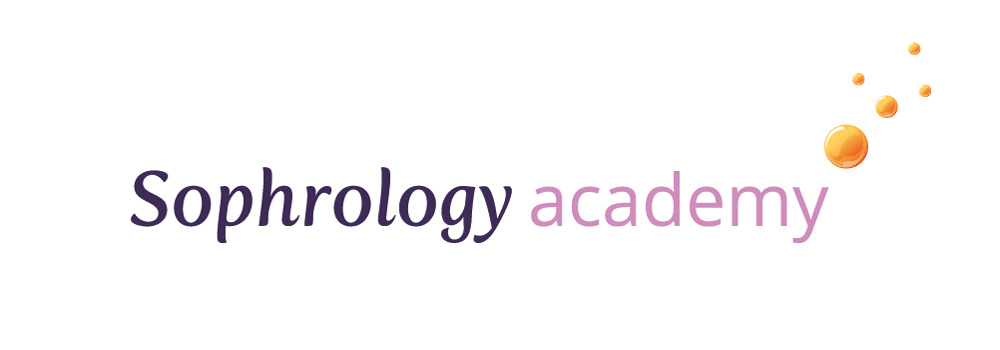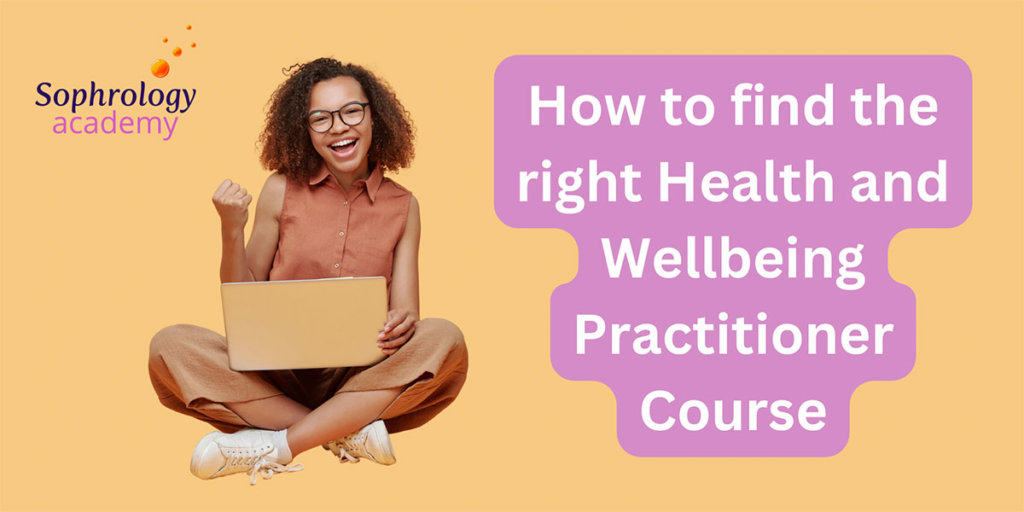Looking for training to advance – or even kickstart – a career in a complementary health practice or wellbeing and performance coaching? Or do you want to learn how to manage your personal wellbeing more effectively?
As we have become more aware of just how much our wellbeing lies in our own hands, there is a growing appetite for training in effective practices that help us – and those we support – to regain a sense of agency and positivity in how we live our lives.
But finding the right course requires some forethought and planning; knowing exactly what you’re looking for before you begin your search can significantly impact your learning experience and outcomes. Below are some key areas to focus on to help you get on the right track from the outset …
Consider how well a Course fits your Goals
Before you choose a course, make sure it delivers the outcome you need to progress your goal, whether that’s a specialism relevant to your current work or experience for a new career you intend to pursue. Also, if there’s an advanced qualification which you want to achieve in the future, consider institutions that offer immediate continuation into the particular specialist areas you wish to work in – rather than having to seek it elsewhere later on. Life can often get in the way of our well-made plans, so one ‘streamlined trajectory’ with clear phases that provide some flexibility can increase the likelihood of achieving your goal.
Get to know about your Course Tutors
Do a little homework on the tutors – find out if they have worked in your chosen industry area to maximise your learning. Real-world examples and case studies relevant to your area can provide valuable learning that you can take with you, beyond your course and onto the field. For that reason, it’s also a good idea to find a course offering a variety of tutors, with a range of expertise and experience to help you expand your knowledge of the area. Don’t be afraid to ask – instructors are usually happy to share their professional background relevant to what they teach.
Think about Learning Platforms
Many courses, previously taught in person, have migrated to online-only learning. This is great for convenience (and unexpected pandemics!) – however, combined courses which offer online and in-person with practical learning can be far more advantageous. Consider those that provide hands-on learning opportunities like case studies, group discussions, and coached practice; not only are these more engaging, but such courses can help to cement your learning far more effectively than, perhaps, an online-only course.
Course Certification and Affiliations
Accreditation of a course gives your qualification credibility and assures that the training meets the standards of the given body. It also gives clients confidence in your professional skillset and ability to help them. However, whilst a training course may offer certification upon completion, not all will be recognised by the relevant bodies you require. Double-check that your chosen course will provide you with the memberships or accreditation that matter to your specialism and to your clients.
Look for Course Reviews
Gather information from those who have already taken the course; reviews and testimonials from alumni students can provide you with a sense of the quality of the course and the instructors and give an idea of what you can expect to learn. Also, where open evenings or information sessions are available, be sure to attend if you can – it’s the perfect opportunity to hear questions from other potential students – and to ask your own!
Consider Course Structure and Timeframe
Get as many details as possible about the course structure, to ensure that it will fit with existing commitments. Whilst classes will likely be your main commitment, there may be other requirements such as self-led study, or ad-hoc group meetings, that you’ll want to take into account. This is such an important consideration that is often missed, and you need to ensure the additional requirements can fit around other work or family commitments you have.
Ask about Individual or Personal Mentoring
It’s important to know that you have someone to speak to when personal issues or professional challenges arise during the course. Check if a course allocates students with a dedicated mentor with whom you can ‘check-in’ when needed, to provide practical guidance or pastoral support.
Check for additional fees and other costs
Course fees, of course, vary greatly, depending on the type, length and delivery of the course. However, there may be additional costs, such as travel, books and other materials, which you’ll need to factor in. If budget is an issue, it’s vital to know the full cost of the course before you commit. Unexpected purchases are often mentioned in course reviews, but you should be able to find a checklist of any additional expenses on the course website.
Compare your Shortlisted Courses
Once you have researched courses that have interested you, compare the pros and cons of each. A logical approach can help guide your ‘gut instinct’ – often the most significant influencer of our decisions!
In summary, you should be looking at a training course which will: fit with your schedule and is relevant to your goals; be taught by experienced instructors and offers a combination of learning platforms; offer the right certification, be affordable, and have a good reputation.
Sophrology – a Personal and Professional Wellbeing Practice
If you are thinking of training as a Complementary Health professional or as a wellbeing and performance coach, you may want to add our Practitioner Diploma programme to your shortlist! At the Sophrology Academy, we deliver professional, certified training in the practice of Sophrology; a method that combines western science with eastern practices of meditation, mindfulness and gentle yoga exercises to improve wellbeing by restoring mind-body harmony. It is an effective approach with a 60-year track record, which is widely practised throughout Europe… and increasingly, here in the UK.
Medical and Social Applications of Sophrology
Sophrology is particularly advantageous as a practice as it spans both the medical field and personal and professional areas of social health and wellbeing. For example, as a complementary health practice, it works alongside other healthcare professions in areas such as perinatal, mental health, addictions, eating disorders, sleep, pain, palliative care, oncology, and chronic health conditions. As a social and preventative tool, however, it is used to provide professional- and self-development in sports, performing arts, education, business, and to improve general wellbeing.
Broaden your Skillset – or Make that Career Move!
This offers a wide range of areas for Sophrologists to practice in, and many work independently within their own businesses, providing online and in-person sessions for individual clients of every background and ability. However, there are many more who use the techniques within their existing healthcare or coaching skill set to provide additional support to those with a range of health and performance goals. In fact, being such an adaptable and accessible practice, Sophrology is fast becoming the complementary therapy of choice for health professionals looking to retrain, upskill, or venture into new career areas beyond their existing healthcare skillset.
Our Foundation and Diploma courses are designed with our students’ career and wellbeing aspirations in mind, with every student allocated a mentor to provide practical support and guidance throughout the course. Further, our instructors are Sophrology experts in their fields, covering a wide range of areas including stress and sleep management, children and teenagers, sports performance, business, and health – whilst building a safe foundation upon which to practise safely.
Download our mini-prospectus with details of our courses, learning approach, fees and learning outcomes. And if you still have some questions, why not attend one of our Information Evenings, held regularly throughout the year?
As one of the leading Sophrology training institutions in the UK, our reputation is built upon the positive experiences of our students. If you’d like more information to help you make the training choice that’s best for you, get in touch. We’re happy to help!


